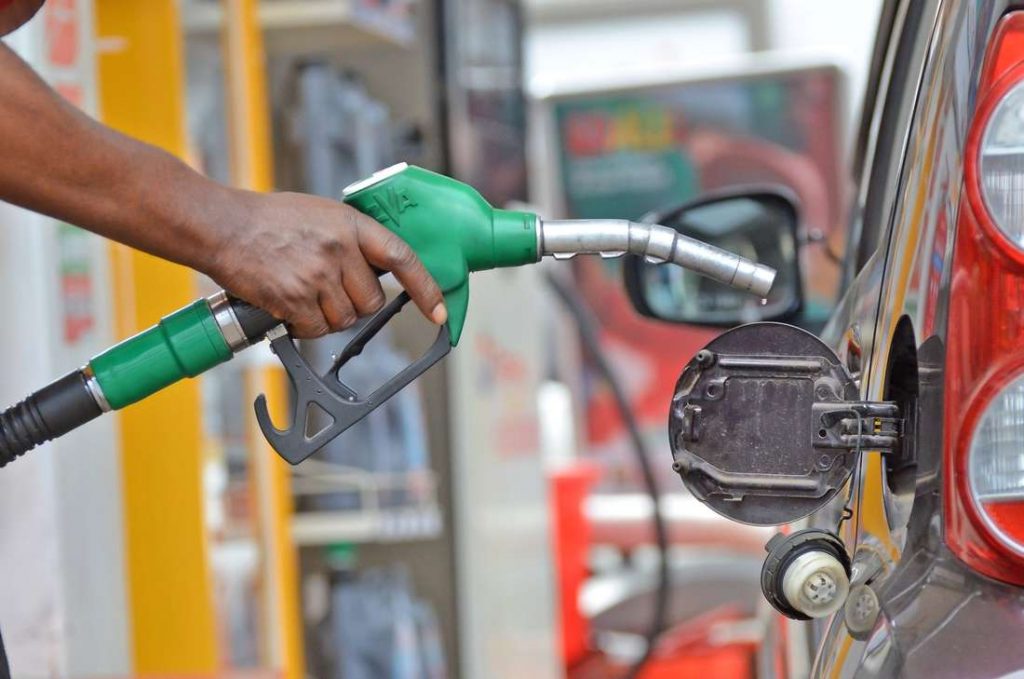Fuel crisis averted
Motorists in the country can now breathe a sigh of relief following renewal of the $307.2 million revolving facility by the Trade Development Bank (TDB) of Kenya to allow the National Oil Company of Malawi (Nocma) to import fuel.
Malawi Energy Regulatory Authority (Mera) chief executive officer Henry Kachaje disclosed at a press briefing in Lilongwe yesterday that TDB has finally provided Nocma with financing for the supply and delivery of fuel worth $50 million.
Mera organised the briefing to dispel reports of fuel shortages in some districts amid growing fears of a looming fuel crisis.

Said Kachaje: “TDB has now given a nod to Nocma and letters of credit for $50 million have been confirmed. Nocma has a ceiling of up to $70 million to procure fuel using this facility, so we expect smooth flow of fuel into the country.”
Earlier the foreign bank had gotten cold feet over what it feared was an illegal process by Nocma to change the country’s fuel procurement system.
TDB is reported to have instituted an investigation to interpret the High Court ruling on use of Delivered at Place Unloaded (DPU) system of importing fuel which Nocma is using alongside the Ex-Tank system.
Commenting on the fuel situation in the country, Kachaje said at least 200 trucks carrying petrol will arrive in the country next week and appealed to the public to avoid spreading rumours of fuel shortage as this leads to panic buying.
According to the Mera boss, fuel availability especially for petrol was affected the past weeks due to closure of the Beira Port in Mozambique for maintenance during
Christmas holidays but he said ships have started docking and trucks are loading the product.
“There were queues at Beira Port because of the closure but now trucks are loading and there are 150 trucks coming to Malawi in the next few days and 50 more trucks are coming from Dar es Salaam Port in Tanzania.”
Kachaje however could not give figures for volumes remaining in strategic fuel reserves as well as those with private importers but gave assurance that the country has enough fuel to last this January.
In 2012 the Reserve Bank of Malawi (RBM) entered into an agreement with TDB to provide the financing facility which has been the main line for importation of fuel and other strategic commodities into the country.
Said Kachaje: “The facility assists RBM in that it enables fuel to be imported on letters of credit (LCs) issued by TDB. RBM then repays the same after 90 days. This gives RBM time to source funds while ensuring a steady supply of fuel in the country.”
Nocma which rides on the RBM facility uses at least $20 million monthly to import fuel into the country.
In an earlier interview Petroleum Importers Limited chief executive officer Martin Msimuko painted a gloomy picture of fuel supply in the coming months saying due to forex shortages, the company may not be able to import enough volumes to last up to the end of January 2022.
He disclosed that since September last year Mera asked the company to increase its fuel volumes of 20 million litres to around 30 million litres to cover up for Nocma which was failing to import enough.
Throughout the fuel procurement process, the country has not been using the DPU system and none of the preferred bidders were evaluated under it.
DPU initially known as Delivered at Terminal (DAT), is a system where the seller assumes all costs and risks until the goods are unloaded at the agreed destination. Under this system the buyer is responsible for import customs formalities.
Delivered Duty Unpaid (DDU) and Ex-Tank were the ones used before Nocma brought DPU into the picture.
DDU is a system where the supplier assumes all the risks for delivery of the product from external depots at the ports to various internal depots in the country.
In September last year, Nocma awarded contracts to two firms Lake Oil Limited and Camel Oil Limited, to supply and deliver into the country 100 000 metric tonnes (MT) and 54 820 MT of refined petroleum products, respectively, from Beira and Nacala in Mozambique and Dar es Salaam in Tanzania.
In April 2021, the Fuel Tankers Operators Association obtained a court order restraining Nocma from using the DDU system, which they argued was illegal and a contravention of regulations. The group prefers the Ex-Tank, which they argue is good for local fuel hauliers.
And in May 2021, Human Rights Defenders Coalition wrote the Anti-Corruption Bureau asking for “an immediate, investigation into each step of the procurement process.”
In June 2021, the ACB, restricted the procurement process to pave the way for investigations into the various alleged anomalies in the process.





